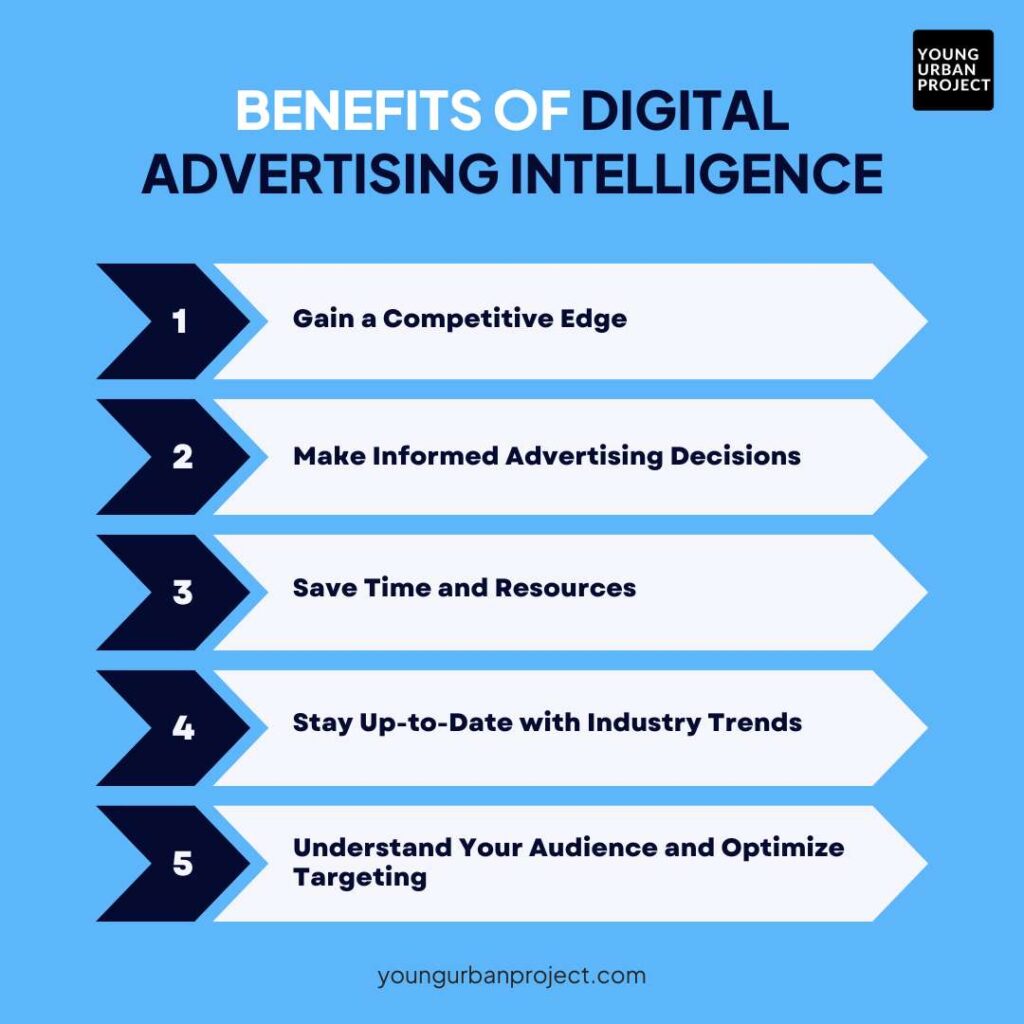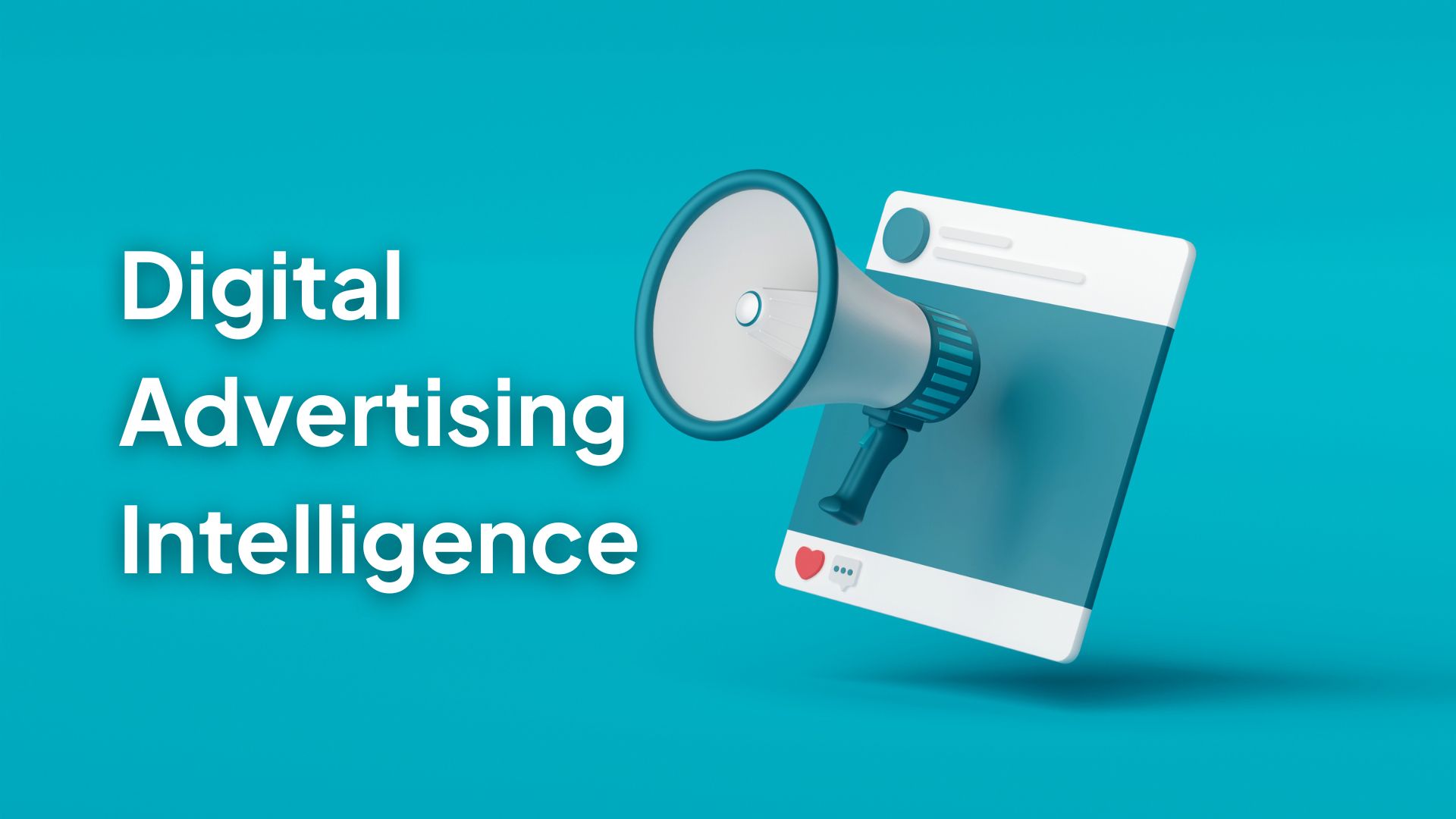Ever feel like you’re throwing money at online ads without knowing what works? Digital advertising intelligence is your solution. It’s basically a way to use data to see which ads work and which don’t. Think of it as a spy tool that shows you what your competitors are doing, plus tells you if your own ads are any good. Companies that use this stuff make more money from their ads because they stop wasting cash on the losers.
Table of Contents
What is Digital Advertising Intelligence, and Why Does It Matter?
Digital ad intelligence means using tools to gather information about online ads. These tools track things like who clicks on what ads, which words get attention, and where the best spots are to place your ads.
This matters because online ads are getting pricier, and more companies are fighting for the same customers. With these tools, you can copy what works for others instead of starting from scratch. You’ll save cash by avoiding mistakes other people have already made. Without this info, you’re just guessing what might work while your competition is using real data. It’s like they have a map and you’re just wandering around hoping to find treasure.
Key Features of Digital Advertising Intelligence Tools
1. Competitor Tracking
You get to see what ads your competitors are running. You can look at their headlines, pictures, and where they place their ads. No more wondering what they’re up to.
2. Ad Performance Analysis
These tools show you which of your ads get clicks and which receive minimal engagement. You can quickly discontinue underperforming campaigns and make more like the good ones.
3. Trend Discovery
You’ll spot new trends before everyone else. Maybe videos are suddenly working better than pictures, or maybe everyone’s talking about a new product feature. You’ll know it early.
4. Budget Optimization
The tools tell you where your money works best. Maybe Facebook ads are getting you sales, but Google ads aren’t. Now you can move your money to the places that actually work.
CheckOut: Ai Marketing Course
How to Make the Most of Digital Advertising Intelligence?
Collect the Right Data and Track Key Metrics
Don’t waste time with useless numbers. Focus on stuff that actually tells you if your ads work:
- Ad Impressions: Count how many eyes see your ads. Low numbers? Your ads aren’t showing up enough. Maybe change your keywords or up your budget.
- Clicks and Cost per Click (CPC): See who’s actually clicking and what it costs you. Paying $5 per click when competitors pay $2? You’re doing something wrong. Fix your ads or try different platforms.
- Conversions: This is the money maker – who actually buys after seeing your ad? Put tracking pixels on your “thanks for buying” pages. Give each ad campaign its own code or link. Without this, you have no clue if your ads make money or just burn cash.
Optimize Ad Campaigns Using Real-Time Insights
Don’t wait weeks to fix failing ads. Real-time data lets you:
- Spot a losing ad? Discontinue the campaign promptly.
- See an ad working well on mobile but demonstrating poor engagement on desktop platforms? Switch your budget now.
- Notice people click but don’t buy? Change your landing page fast before wasting more money.
- Find out certain words get more clicks? Update all your ads with those words tonight.

Enroll Now: Advanced Digital Marketing Course
Discover Market Trends and Track Competitors with AI Analysis
Uncover Industry Trends
Stop being the last to know what’s hot. Ad intelligence tools show you:
- What words and phrases are suddenly getting clicks in your industry
- If video ads are beating image ads this month
- Which social platforms are your customers moving to
- What new products are people in your market searching for
Competitive Intelligence: Spy Without the Cost
Why pay thousands for market research when AI can spy for you? These tools show you:
- Every ad your competitors are running right now
- Which ones do they keep using (hint: those are working!)
- What deals and prices are they offering
- What benefits do they highlight most in their ads
Compare their advertisements to yours. Are they getting better results? Learn from their effective approaches and improve upon them.
Create Smarter Ads Using AI
Stop guessing what works. AI spots winning patterns like:
- Words that trigger more clicks in your industry
- Best places to put your call-to-action button
- How long should your headlines be for your product
- Which emotions work best for your type of customer
Research and Compare Ads
See how your ads stack up:
- Put your ads side-by-side with top performers
- Find gaps in your messaging that competitors exploit
- See if your offers are competitive or outdated
- Check if your visuals look cheap compared to others
Leverage Winning Ad Strategies
Take what works and make it yours:
- Found a killer headline format? Adapt it for your product.
- Notice competitors focusing on a problem you overlooked? Add it to your ads.
- See a color scheme getting attention? Try a similar vibe.
- Spot a new way of showing benefits? Copy the structure but use your own selling points.
Also Read: Digital Marketing Course in Chandigarh
The Benefits of Digital Advertising Intelligence

1. Gain a Competitive Edge
While your competitors fly blind, you’ll see exactly what works. These tools show you what ads are winning in your market before you spend a dime. You’ll know which messages connect with customers and which ones flop. It’s like having X-ray search vision while your competition wears blindfolds.
2. Make Informed Advertising Decisions
Stop guessing where to put your money. These tools show you hard numbers on which platforms, times, and audience groups deliver results. No more “I think Facebook might work better” conversations – you’ll know exactly where each dollar works hardest. Your gut feelings get replaced with actual data.
Also Read: Types of Advertising Agencies and Their Roles
3. Save Time and Resources
Quit wasting hours pulling reports from different platforms. These tools grab all your data automatically and show you what matters. Your team can focus on creating better ads instead of struggling with spreadsheets. One dashboard shows you everything you need to know in minutes, not days.
4. Stay Up-to-Date with Industry Trends
Markets change fast, and these tools spot the shifts before your competition notices. Maybe video suddenly outperforms images, or mobile users start converting better than desktop. You’ll see these patterns emerge in real-time and can pivot your strategy before others even realize what’s happening.
5. Understand Your Audience and Optimize Targeting
Find out exactly who buys from you instead of who you think might buy. These tools reveal which age groups, locations, and interests actually convert. Stop wasting money showing ads to people who never purchase. You’ll discover surprising customer segments you never thought to target before.
Also Read: Instagram Ads Cost: How Much Do Instagram Ads Cost
Top Digital Advertising Intelligence Software and Tools
1. Google Marketing Platform
Best for: Companies already using Google Ads wanting deeper insights
This connects all your Google advertising tools in one place. You can track how ads perform across search, display, and YouTube. Great reporting features, but it works best if you’re mainly using Google’s ecosystem.
Also Read: How to Become a Google Ads Specialist in 2025?
2. Adobe Advertising Cloud
Best for: Enterprise-level businesses with big budgets.
Handles everything from TV to social media ads in one system. Offers AI-powered optimization and forecasting. Expensive but comprehensive for large companies managing multiple campaigns across many channels.
3. SEMrush
Best for: Small to medium businesses wanting competitor insights.
Started as an SEO tool but now offers solid ad intelligence features. Great for spying on competitor keywords and ad copy. More affordable than enterprise options with an easier learning curve.
4. SpyFu
Best for: PPC-focused marketers needing competitor research.
Specializes in showing you exactly what competitors bid on and which ads they run longest (hint: their winners). Excellent for finding profitable keywords others have already tested. Simple interface makes competitive research quick.
5. Adverity
Best for: Data-focused teams needing cross-platform insights.
Pulls data from virtually any advertising platform into one place. Creates automated reports and alerts when metrics change significantly. Excellent for companies running ads across many different channels and needing unified reporting.
Also Read: What is Programmatic Advertising?
Final Thoughts
The days of throwing money at ads and hoping for the best are over. Digital advertising intelligence gives you the power to see what actually works before blowing your budget. Think of it as having a superpower your competition doesn’t have – you can see their moves, learn from their mistakes, and beat them at their own game.
The companies winning online today aren’t the ones with the biggest budgets – they’re the ones using these tools to make smarter decisions. Your ads get better, your costs go down, and your sales go up. It’s like having X-ray glasses for the digital marketplace. The question isn’t whether you can afford these tools – it’s whether you can afford to let your competitors use them while you stay in the dark.
FAQs: Digital Advertising Intelligence
1. What is the difference between digital advertising intelligence and competitive intelligence?
Digital ad intelligence focuses specifically on ad performance – which ads work, what they cost, and who sees them. Competitive intelligence is broader, covering everything from product pricing to website changes. Ad intelligence is the laser-focused tool for marketers spending money on ads, while competitive intelligence serves the whole business strategy.
2. How can digital advertising intelligence help with budget optimization?
It shows you exactly where your money works hardest. See that Facebook gives you sales at $10 each while Google costs $50 per sale? Move money to Facebook. Notice desktop users rarely buy, but mobile users convert like crazy? Shift budget to mobile ads. The tools flag money-losers before they drain your budget and highlight winners you should double down on.
3. Is it necessary to use digital advertising intelligence tools for small businesses?
Absolutely – small businesses need these tools MORE than big ones. You can’t afford to waste money on ads that don’t work. While the big guys can absorb failed campaigns, you need every dollar to count. Many tools offer affordable options for small businesses. They level the playing field by letting you benefit from the expensive testing that your bigger competitors have already done.
4. How does AI-driven ad intelligence work?
These tools constantly collect mountains of ad data – which ads run where, how much they cost, who clicks them, and who buys after clicking. The AI spots patterns humans would miss, like “green buttons outperform red ones on Tuesdays” or “adding the word ‘exclusive’ boosts clicks by 23%.” It finds these weird but profitable insights by analyzing more data than a human could in a lifetime.
5. Can digital advertising intelligence help with improving ad targeting?
Considerably. These tools show you which customer segments actually buy versus just look. Maybe you thought 25-34 year olds were your target, but the data shows 35-44 year old women buy twice as often. Or you discover people in certain cities convert way better than others. The tools reveal these hidden patterns so you can stop wasting money showing ads to people who never buy.
6. What are the risks of not using digital advertising intelligence in today’s market?
You’ll bleed money on ads that don’t work while your competitors optimize theirs. You’ll target the wrong people with the wrong messages. Your costs per sale will be higher than competitors who use these tools. By the time you figure out what works through trial and error, market trends will have changed again. It’s like bringing a knife to a gunfight – you’re using outdated methods against companies with superior technology.

